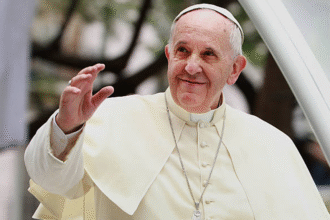How did Chancellor Scholz respond to the Solingen tragedy?
Following a recent incident in the western town of Solingen, where a Syrian man, an asylum seeker, has been accused of killing three persons, German Chancellor Olaf Scholz has requested a decrease in irregular migration. “This was terrorism, terrorism against us all,” Scholz said during a visit to the crime site.
- How did Chancellor Scholz respond to the Solingen tragedy?
- What is the political fallout and how has the migration debate intensified in Germany?
- What is the government’s stance on migration and its legal commitments?
- What challenges exist in deportation?
- How might the Solingen incident impact upcoming elections?
The Chancellor underlined that his administration would take all the required actions to guarantee repatriation and deportation of those who cannot and should not stay in Germany. Scholz added, “We will speed up deportations if needed,” and vowed to tighten rules on firearm ownership quickly.
What is the political fallout and how has the migration debate intensified in Germany?
The sad events in Solingen have started a fierce political discussion throughout Germany. Coming to Germany as a Syrian refugee in 2022, 26-year-old Issa Al H., the alleged assailant, is suspected of having connections to the extremist group Islamic State. His plea for asylum was turned down, and past asylum registration in Bulgaria led to orders for deportation. Still, he stayed in Germany since authorities could not find him.
Leader of Conservative opposition Friedrich Merz has demanded more onerous border restrictions and a stop to welcoming immigrants from Syria and Afghanistan. “We must stop absorbing migrants from these areas,” Merz said. In a more extreme posture, far-right Alternative for Germany (AfD) leader Alice Weidel calls for a total stop to all migration. Experts, however, criticize Weidel’s stance as such policies are unworkable and against German and EU legislation.
What is the government’s stance on migration and its legal commitments?
Notwithstanding the debate, Mr Scholz’s center-left SPD party is dedicated to Germany’s legal and humanitarian responsibilities to help those escaping persecution. A SPD spokesman added, “Germany remains dedicated to upholding its commitments to asylum seekers.” Still, the administration has promised to deport immigrants whose asylum claims have been denied or who have committed significant crimes.
What challenges exist in deportation?
Germany usually avoids deportations of people to dangerous nations or conflict zones, including Syria or Afghanistan, primarily because of the difficulty in discussions with administrations like the Taliban. Still, there are mounting calls for a review of these rules.
Years of continuous debate about migration have passed. Local governments claim their funds are strained, and proposals to speed the asylum procedure and let immigrants work sooner to help them into German society abound. Germany is experiencing a drop in numbers this year and typically does well with the significant refugee intake.
More than 350,000 persons sought Asylum in Germany in 2023. Furthermore, following Russia’s full-scale invasion in 2022, around 1.2 million Ukrainians have come to Germany. Germany has witnessed somewhat few events of terror acts connected to asylum seekers as compared to other nations with fewer migrants. The most recent notable assault was in 2016 when an Islamist terrorist killed twelve persons at a Berlin Christmas market.
How might the Solingen incident impact upcoming elections?
Politically, the Solingen incident had great significance. Two sizable Eastern German states, Saxony and Thuringia, have important regional elections on Sunday. Leveraging the attack in its campaign, the AfD, predicted to perform strongly and maybe earn the most votes, is Referring to the AfD’s Thuringian regional head, Björn Höcke, the party swiftly posted a video on social media under the slogan “Höcke or Solingen.” The echoes of the assault will probably drastically change the political environment now and in the future.








